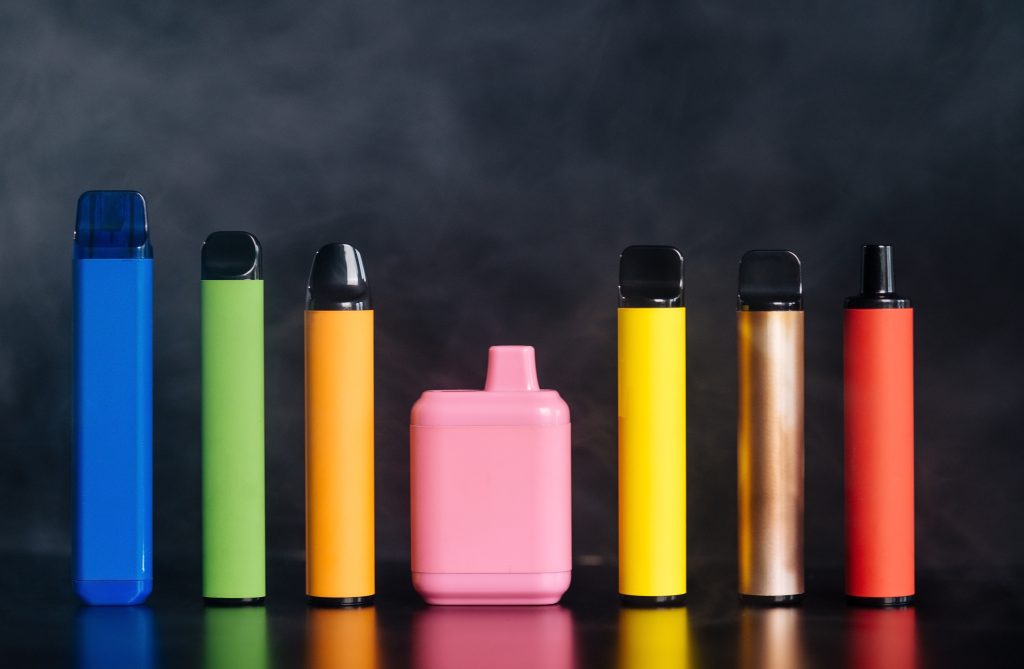
A nicotine industry veteran answers some common questions concerning the rise of synthetic nicotine.
By Chris Howard
Since President Biden signed the fiscal year 2022 Consolidated Appropriations Act into law on March 15, 2022, questions surrounding the U.S. Food and Drug Administration’s Center for Tobacco Products’ (CTP) handling of enforcement with respect to products containing nontobacco-derived (NTN), or synthetic nicotine, have been pervasive. While the CTP has indicated that it is not engaging in enforcement discretion to address the exceptionally short compliance timeline Congress provided in the bill, the center’s actions and public statements provide insight into its enforcement priorities and how the industry can assess the position the center takes. In this article, I will answer some frequently asked questions formulated from an extensive review of public statements and enforcement actions.
What does the Consolidated Appropriations Act have to do with tobacco products containing synthetic nicotine?
The act provided the CTP jurisdiction over NTN products beginning April 14, 2022. It also established a period for compliance with the Federal Food, Drug and Cosmetic Act’s premarket review requirements for NTN on or introduced to the market by April 14, 2022.
The legislation provided that for a manufacturer to continue marketing NTN products after May 14, 2022, they must submit a premarket tobacco product application (PMTA) for such products by that date. In the event a manufacturer complied with this requirement, they were permitted to continue to market such a product through July 13, 2022 (provided the FDA didn’t previously deny the PMTA, refuse to file the PMTA or withdraw a marketing order for a previous version of the product at issue that utilized tobacco-derived nicotine). Just like tobacco-derived products that remain the subject of pending PMTAs beyond Sept. 9, 2021, NTN products that are the subject of pending PMTAs after July 13, 2022, technically must have received market orders to be legally marketed today.
Are tobacco products containing synthetic nicotine illegal?
Just like tobacco products containing tobacco-derived nicotine that are subject to pending PMTAs, all current tobacco products containing synthetic nicotine on the market in the United States are illegal. It is important to note, however, that this doesn’t mean that CTP intends to expend its limited enforcement resources to remove all such products from the market. Rather, the center has expressed its intent to move forward in accordance with a discrete set of priorities outlined more particularly below.
Does the FDA intend to treat enforcement of tobacco products containing synthetic nicotine differently than enforcement of tobacco products containing tobacco-derived nicotine?
No. CTP leadership has made it clear that it will apply its enforcement priorities identically with respect to both categories of products.
The CTP has been explicit that both tobacco products containing nicotine derived from tobacco (marketed after Sept. 9, 2021) and tobacco products containing nontobacco-derived nicotine (marketed after July 13, 2022) without premarket authorization (marketing orders) are considered by the FDA to be noncompliant and that manufacturers of both categories of products are subject to the same public health standards. The CTP’s position is set forth clearly in the below public statements:
Tobacco Products Containing Nicotine Derived from Tobacco
On Sept. 9, 2021, the FDA issued a statement entitled “FDA Makes Significant Progress in Science-Based Public Health Application Review, Taking Action on Over 90 Percent of More Than 6.5 Million ‘Deemed’ New Tobacco Products Submitted,” which you can review at the following link: https://www.fda.gov/news-events/press-announcements/fda-makes-significant-progress-science-based-public-health-application-review-taking-action-over-90. In this release, former Acting Commissioner Janet Woodcock and former CTP Director Mitch Zeller indicated: “All new tobacco products on the market without the statutorily required premarket authorization are marketed unlawfully and subject to enforcement action at the FDA’s discretion” (emphasis added).
Tobacco Products Containing Nontobacco-Derived Nicotine
On Oct. 14, 2022, the FDA issued a statement entitled “FDA Completes Initial Review of 95 Percent of Nontobacco Nicotine Product Applications; Agency Has Issued Over 60 Warning Letters to Manufacturers, Including for Products with a Submitted Application and Negative Action,” which you will find at https://www.fda.gov/tobacco-products/ctp-newsroom/fda-completes-initial-review-95-non-tobacco-nicotine-product-applications-agency-has-issued-over-60. Upon review, you will note that the FDA is speaking about tobacco products containing nontobacco-derived nicotine. As we discussed, the FDA used nearly the exact same language employed by Woodcock and Zeller in September 2021 to describe the agency’s views with respect to tobacco products containing nicotine derived from tobacco. In particular, the FDA states, “To date, the FDA has not authorized any NTN products. Therefore, all NTN products on the market are marketed unlawfully and risk FDA enforcement action” (emphasis added).
In a Feb. 3, 2023, email to the executive director of the National Association for Tobacco Outlets from a director in the CTP’s Office of Compliance and Enforcement, FDA leadership provides even more clarity:
“FDA is fully committed to implementing the new federal law clarifying its authority to regulate tobacco products containing NTN, including synthetic nicotine. Manufacturers of these products are now held to the same public health standards, including premarket review, as tobacco-derived nicotine (TDN) products. Irrespective of whether the product contains TDN or NTN, it is illegal to sell or distribute tobacco products that the FDA has not authorized. On Aug. 8, 2016, all deemed tobacco products, including e-cigarettes, became subject to FDA’s tobacco authorities.
“As a matter of enforcement discretion at the time, the agency stated that it intended to defer enforcement for a period of time of the premarket authorization requirement for certain deemed new products on the market as of Aug. 8, 2016. However, in light of later data on youth use and other information, FDA revised this policy in its 2020 enforcement priorities guidance. That guidance described how the agency intended to prioritize its limited enforcement resources regarding certain ENDS [electronic nicotine-delivery system] products. It also noted that all deemed new tobacco products on the market without authorization are illegally marketed and that the agency ‘retains discretion to pursue enforcement action at any time’ against such products.
“The same principle applies to NTN products; specifically, all illegally marketed NTN products are subject to enforcement ….”
Director Brian King has made similar statements in several open forums indicating that tobacco products without market authorization (regardless of whether they contain nicotine derived from tobacco or nontobacco-derived nicotine) are noncompliant. Based upon these ubiquitous public statements, it appears the FDA will continue to prioritize enforcement against manufacturers with products (a) not covered by timely filed pending PMTAs or (b) that are the subject of marketing denial orders—with an emphasis on products that are particularly attractive to youth.
What is the significance of the Aug. 8, 2016, effective date of the deeming regulation with respect to tobacco products containing synthetic nicotine?
The FDA did not have authority to regulate tobacco products containing synthetic nicotine upon the effective date of the deeming rule. Rather, the FDA obtained authority to regulate such products following the effective date of the Consolidated Appropriations Act. The relevant timelines established by the act did not include a period for continued marketing of unauthorized new products containing synthetic nicotine beyond July 13, 2022. As such, all tobacco products containing synthetic nicotine on the market without premarket authorization are illegal and subject to FDA enforcement.
What are CTP’s priorities when enforcement against tobacco products containing synthetic nicotine without market orders?
Regardless of whether a product without market authorization contains synthetic or tobacco-derived nicotine, the FDA has indicated its intention to prioritize its enforcement efforts with respect to certain deemed tobacco products (1) not covered by timely filed PMTAs, (2) that have been the subject of marketing denial orders or those covered by PMTAs subject to negative determinations, including those rejected on procedural grounds (i.e., refuse-to-accept letters or refuse-to-file letters), and (3) that raise youth use concerns.
As we are all aware, even though the continued compliance policy for certain deemed new tobacco products ended on Sept. 9, 2021, and those products were subject to immediate enforcement action, the CTP has not, as of the date of the publication of this article, brought enforcement action against any of those products covered by still pending PMTAs. Based on the center’s handling of these products combined with the CTP’s recent public statements, it seems likely that the CTP will exercise a similar approach to NTN products covered by PMTAs that remain pending after July 13, 2022. Moreover, the CTP is likely to refrain from taking enforcement action against such products while it reviews the pending applications.
Chris Howard is the executive vice president of external affairs and new product compliance for Swisher International.


